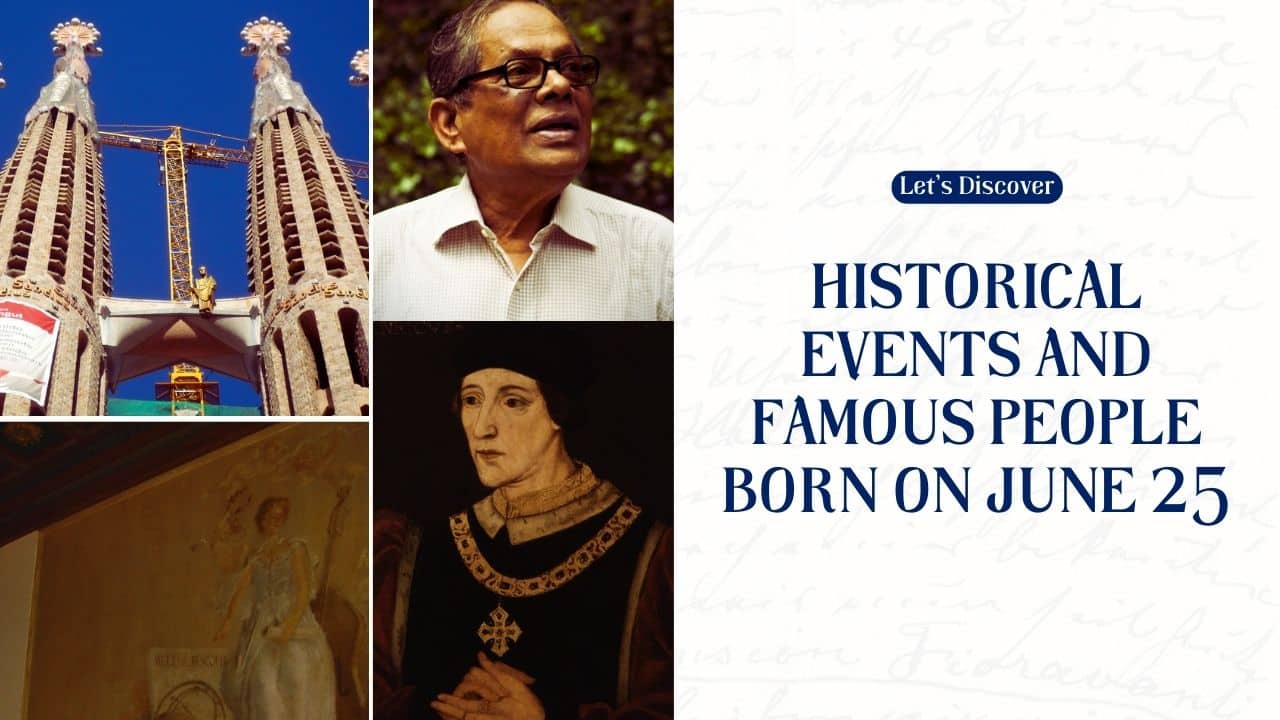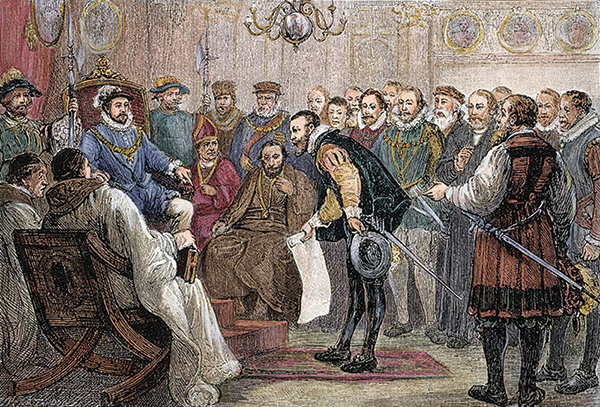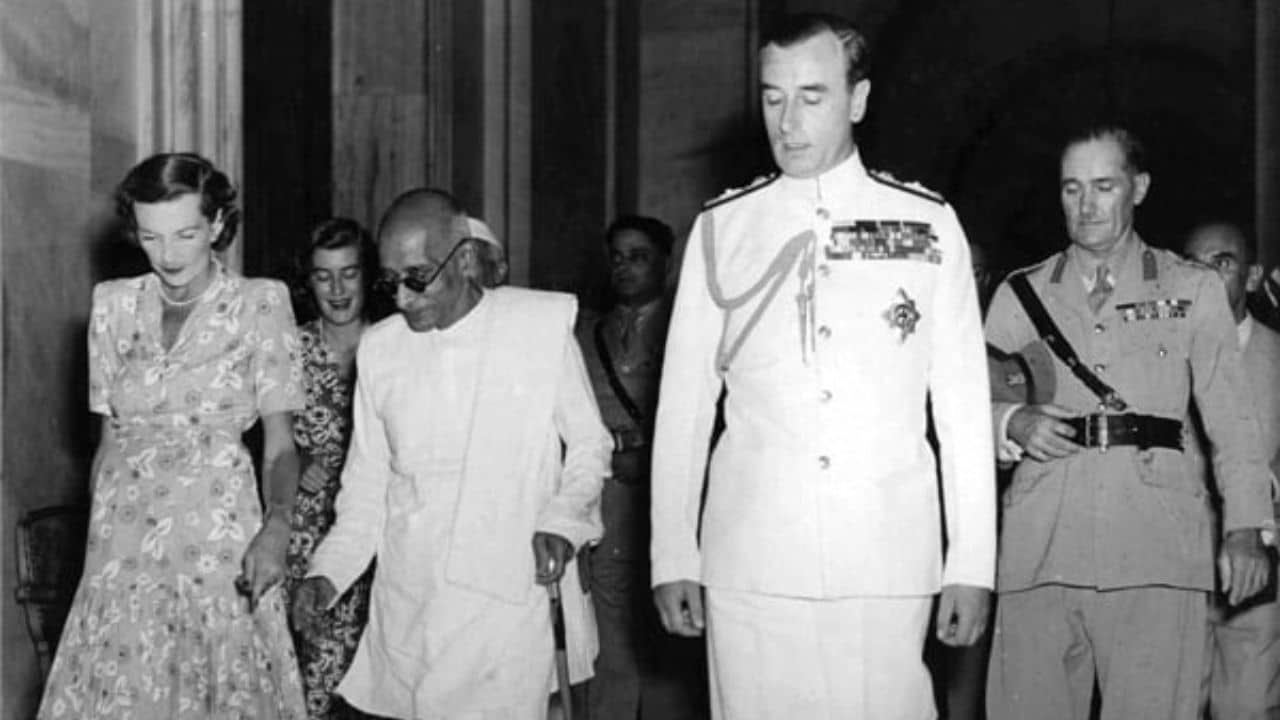June 25 is a day that has seen many important events throughout history. It’s also the birthday of several famous people who have made big impacts in different fields. In this article, we’ll explore some key events that happened on this day and learn about the lives of notable people born on June 25.
Historical Events on June 25
Peace of Konstanz (1183)
Long ago, in 1183, a very important peace agreement was signed. It was called the Peace of Konstanz. This agreement was between Emperor Frederick I Barbarossa and a group of Italian cities called the Lombard League.
Before this peace, there was a lot of fighting. The Emperor wanted more control over the Italian cities, but the cities wanted to be free to make their own choices. This led to many battles.
The Peace of Konstanz was important because it helped stop the fighting. It gave the Italian cities more freedom to run their own affairs. At the same time, it kept the Emperor as a kind of boss over them. This peace helped create a balance that lasted for many years.
Edward V Declared Illegitimate (1483)
On June 25, 1483, something big happened in England. The House of Lords and Commons, which are important parts of the government, said that King Edward V was not the real king. They said this because they believed his parents’ marriage was not legal.
This happened during a time called the War of the Roses. This was a fight between two powerful families for the throne of England. Edward V was very young when he became king after his father died. But his uncle, Richard, wanted to be king instead.
By saying Edward V was not the real king, Richard was able to take the throne for himself. He became King Richard III. This event changed the course of English history and led to more fighting in the War of the Roses.
The Augsburg Confession (1530)
On June 25, 1530, a very important document in the history of Christianity was presented. It was called the Augsburg Confession. This happened in Germany, and it was a big moment for a new group of Christians called Protestants.
The Protestants had different ideas about Christianity than the Catholic Church, which was very powerful at that time. The Augsburg Confession explained what the Protestants believed. It was presented to Charles V, who was the Holy Roman Emperor.
This event was crucial because it helped establish Protestantism as a major branch of Christianity. It led to big changes in how many people practiced their faith. The ideas in the Augsburg Confession are still important for many Protestant churches today.
Elena Cornaro Piscopia’s Doctorate (1678)
June 25, 1678, was a groundbreaking day for women’s education. On this day, Elena Cornaro Piscopia became the first woman in the world to receive a university doctoral degree. This happened at the University of Padua in Italy.
Piscopia was very smart and studied many subjects like mathematics, philosophy, and theology. At that time, it was very rare for women to go to university. Most people thought higher education was only for men.
When Piscopia got her degree, it was a big step forward for women’s rights in education. It showed that women could be just as smart and capable as men. Her achievement helped open doors for other women to pursue higher education in the future.
Virginia Ratifies US Constitution (1788)
On June 25, 1788, Virginia became the 10th state to agree to the United States Constitution. This was a big moment in the creation of the United States as we know it today.
Before a state could join the new country, it had to agree to follow the Constitution. Virginia was very important because it was a big and powerful state. Many important leaders like George Washington and Thomas Jefferson were from Virginia.
When Virginia agreed to the Constitution, it helped convince other states to join too. This was a crucial step in forming the United States and setting up its government. It helped create the system of laws and rights that Americans still use today.
Famous Birthdays on June 25
Antoni Gaudí (1852-1926)
Antoni Gaudí was a famous architect from Spain. He was born on June 25, 1852, in Reus, Catalonia. Gaudí is known for his unique and creative building designs.
Here’s a short bio of Antoni Gaudí:
| Category | Information |
|---|---|
| Born | June 25, 1852 |
| Died | June 10, 1926 |
| Nationality | Spanish |
| Profession | Architect |
| Famous Works | Sagrada Família, Casa Milà, Casa Batlló |
| Style | Modernisme (Art Nouveau) |
Gaudí’s most famous work is the Sagrada Família, a huge church in Barcelona that is still being built today. His buildings often look like they come from fairy tales, with strange shapes and colorful decorations. Gaudí’s work has inspired many other architects and artists around the world.
Lord Mountbatten (1900-1979)
Lord Louis Mountbatten was an important British naval officer and statesman. He was born on June 25, 1900, in Windsor, England. Mountbatten played a big role in British history, especially during World War II and the independence of India.
Here’s a short bio of Lord Mountbatten:
| Category | Information |
|---|---|
| Born | June 25, 1900 |
| Died | August 27, 1979 |
| Nationality | British |
| Profession | Naval officer, Statesman |
| Notable Role | Last Viceroy of India |
| Military Service | Royal Navy, Supreme Allied Commander South East Asia Command |
Mountbatten was a member of the British royal family and had a long career in the Royal Navy. He became famous for his leadership during World War II. Later, he was chosen to be the last Viceroy of India, helping India become an independent country. Sadly, Mountbatten was killed by terrorists in 1979.
George Orwell (1903-1950)
George Orwell was a famous British writer. He was born on June 25, 1903, in Motihari, India (which was part of British India at that time). Orwell is known for his books that talk about political issues and dangers to freedom.
Here’s a short bio of George Orwell:
| Category | Information |
|---|---|
| Born | June 25, 1903 |
| Died | January 21, 1950 |
| Nationality | British |
| Profession | Author, Journalist |
| Famous Works | “Animal Farm,” “Nineteen Eighty-Four” |
| Writing Style | Political satire, dystopian fiction |
Orwell’s most famous books are “Animal Farm” and “Nineteen Eighty-Four.” These books warn about the dangers of totalitarian governments. His ideas and the phrase “Big Brother” from “Nineteen Eighty-Four” are still used today when people talk about government control and loss of privacy.
Bashirul Haq (1942-2020)
Bashirul Haq was an important architect from Bangladesh. He was born on June 25, 1942. Haq was known for designing buildings that worked well with the environment and helped solve social problems.
Here’s a short bio of Bashirul Haq:
| Category | Information |
|---|---|
| Born | June 25, 1942 |
| Died | April 4, 2020 |
| Nationality | Bangladeshi |
| Profession | Architect, Town Planner |
| Notable Role | Visiting Professor at MIT |
| Design Focus | Environmentally and socially responsive architecture |
Haq’s work was very important in South Asia. He designed buildings that fit well with the local climate and culture. He also taught at the Massachusetts Institute of Technology (MIT) in the United States. Haq’s ideas about how buildings should work with nature and help people have influenced many other architects.
Sidney Lumet (1924-2011)
Sidney Lumet was a famous American film director. He was born on June 25, 1924, in Philadelphia, Pennsylvania. Lumet made many important movies that dealt with serious topics.
Here’s a short bio of Sidney Lumet:
| Category | Information |
|---|---|
| Born | June 25, 1924 |
| Died | April 9, 2011 |
| Nationality | American |
| Profession | Film Director |
| Famous Films | “12 Angry Men,” “Dog Day Afternoon,” “Network” |
| Style | Realistic, often dealing with social issues |
Lumet started his career in television before moving to movies. He was known for making films that looked at problems in society and the justice system. His movies often got people talking about important issues. Lumet’s work has had a big influence on American cinema.
Takeaway
June 25 is a day that has seen many important events in history. From peace agreements that changed Europe to moments that shaped the United States, this day has been significant. It’s also the birthday of people who have made big impacts in architecture, writing, filmmaking, and more. Learning about these events and people helps us understand how the world we live in today was shaped.
References:
- “Peace of Konstanz.” Encyclopedia Britannica.
- “Edward V of England.” Royal Museums Greenwich.
- “The Augsburg Confession.” The Lutheran Church—Missouri Synod.
- “Elena Lucrezia Cornaro Piscopia.” Biographies of Women Mathematicians, Agnes Scott College.
- “Virginia Ratifies the Constitution.” National Constitution Center.
- “Antoni Gaudí.” The Art Story.
- “Louis Mountbatten, 1st Earl Mountbatten of Burma.” Britannica.
- “George Orwell.” The Orwell Foundation.
- “Bashirul Haq.” ArchDaily.
- “Sidney Lumet.” American Film Institute.




































